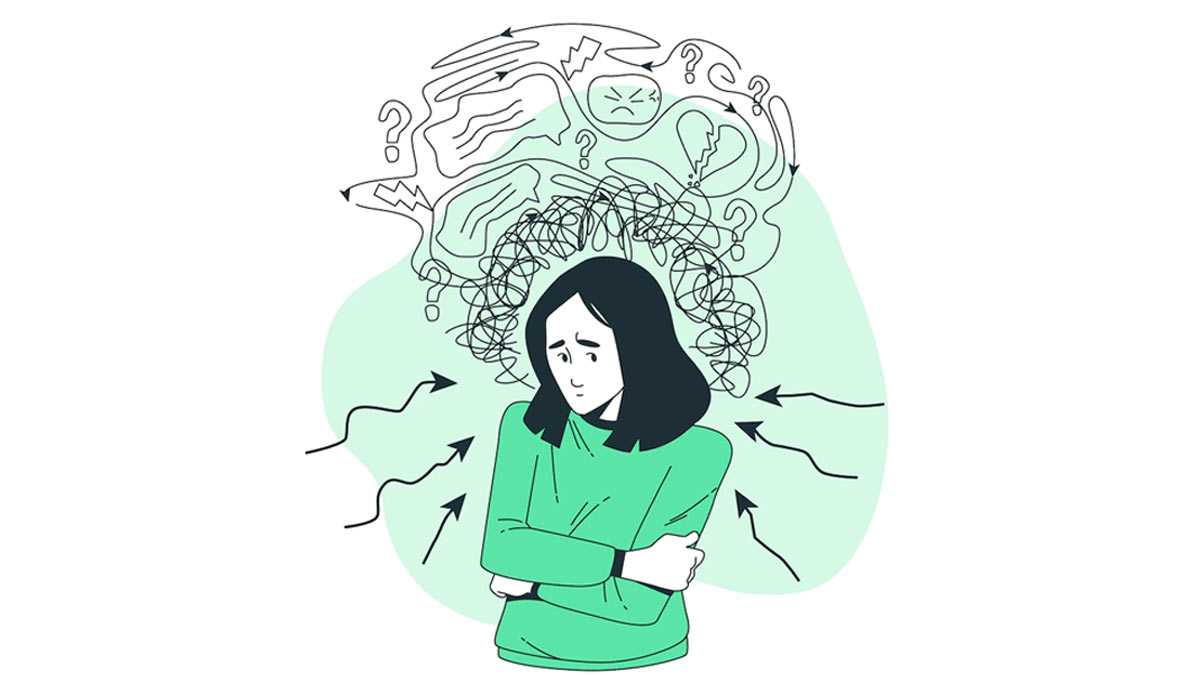
Imposter Syndrome as a concept developed in the 1970s, however it is not classified as a psychological illness. It happens not only due to negative self-perceptions, but also systemic biases such as classism, racism, sexism, and xenophobia, which makes one second guess themselves in workplaces and outside. It is especially prominent in women due to the patriarchal structure of society that causes women to usually not feel valued, especially beyond their domestic sphere.
A study done by KPMG found that 75% of female executives across industries have experienced imposter syndrome in their careers and 74% of them believe that their male counterparts do not experience feelings of self-doubt as much as female leaders do.
“As a founder of a company, I have seen women who when given bigger roles come back to me and say that they are not good enough,” said Apurva Purohit, the co-founder of Aazol. “They think that they are being given the position because of luck and not their hard work.”
She said that we bring up girls with negative stereotypes like how women are bad drivers, not capable of doing jobs in STEM, and not handling managerial responsibilities. “Their self-confidence goes down and this inherent conditioning of seeing women as the weaker sex leads them to critique themselves.”
“When I was the CEO of Radio City, I promoted a woman to become the head of human resources, however she felt she was not equal to other department heads and was not ready for it,” said Purohit. “I had to mentor and groom her to believe that she was worthy and should have faith in my judgement.”
Malvika Sheth, a fashion and beauty content creator said that her imposter syndrome kicks in the most when she is around well-known people and invited to the same events. “Fashion week is anxiety-inducing and I inevitably spend some of the nights crying because it is nerve-wracking to be around celebrities and constantly question whether I deserve to be in the same room.”
She added that as a woman of colour in the industry where there is huge lack of diversity, she experiences the phenomenon more. “I remember going to shows in Milan and seeing zero guests and models of colour. A few years ago, I was even subtly denied entry to a presentation, which I was invited to because the woman at the door eyed me up and down, and just shook her head as if there was no way an Indian American could be invited.”
She said it is hard to think you are worthy of much when society has primed you to believe otherwise. “I am used to overcompensating and constantly proving myself. When a good thing happens all of a sudden, it feels like it is not for me and they made a mistake. Especially as a woman, the lack of equal treatment can shift one’s perception of what is normal and what is deserved.”
Anjalee Durgesh, a postdoctoral student at the University of Washington, Seattle said that her family environment made her question herself. “Growing up in a small town, I used to look up to my cousin sister who went to a reputed English medium school in a big city. Whenever she came for vacations, all my cousins would be in awe of her. There was always a comparison drawn between us in terms of spoken English, the kind of looks we had, and the school we went to.”
She said in her first year in Miranda House, seeing students from metropolitan cities speaking fluent English when she was struggling herself, made her feel like an imposter. “Even little things like cultural discussions around American pop culture, which I did not have access to growing up made me feel like a misfit.”
Don't miss:Glass Ceiling – Broken Or Just Cracked?
Rachana Awatramani, a counselling psychologist said that an empathetic and supportive environment can help manage the syndrome. “Seeing women leadership around can make a huge difference.”
She added that accepting that nobody is perfect and has unique abilities is important. “Understanding that everyone has their own strengths and weaknesses, rather than comparing achievements is a healthy way to move forward.”
Purohit noted that the realisation that the inner critic or voice is not always right and separating that from reality aids in developing self-confidence. “This is a universal phenomenon and no woman is alone while experiencing this distortion.” She added that we should encourage each other as women and celebrate each other’s successes.
For Sheth, her therapist helped reframe her thoughts by making her keep a gratitude journal. “Imposter syndrome often distances you from happenings in your life, while gratitude pulls you closer and attracts more of the good,” she said.
She further said that one should be mindful of what they put value on. “As a South Asian born and raised in the US to believe that marriage, good grades, a traditional nine to five desk job at a renowned company was not really meant for me. I achieved my own greatness in my career as a creative, so sometimes breaking those generational patterns of thinking is the way to go.”
Our aim is to provide accurate, safe and expert verified information through our articles and social media handles. The remedies, advice and tips mentioned here are for general information only. Please consult your expert before trying any kind of health, beauty, life hacks or astrology related tips. For any feedback or complaint, contact us at [email protected].